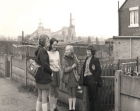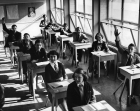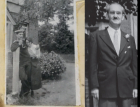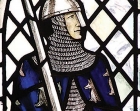Interpretations
The fact that both the National Curriculum in England and the national assessment objectives that frame public examinations at GCSE and A-level include a focus on ‘historical interpretations’ (plural) as well as referring separately to students’ own use of evidence – makes it very clear that there is an important distinction between the disciplinary concepts of ‘evidence’ and ‘interpretations’. While the former is concerned with students’ use of sources to develop their own interpretation of events; the latter is concerned with students’ exploration and explanation of how and why interpretations developed by historians differ from one another. (Both have a critical role to plan in students’ historical learning – and both need to be carefully planned!) Giving students the confidence and the knowledge to handle competing interpretations is undoubtedly challenging, but the materials in this section show how careful planning within and across the key stages (including Key Stage 3) can help students of all ages to engage effectively with interpretations examining the relationship between historians’ accounts (in books and on television) and the particular questions that they have chosen to answer, as well as the sources on which they claim to have drawn. Read more
-

Beyond the bolt-on: placing local history at the heart of a diverse and decolonial curriculum
ArticleClick to view -

Tracing the popular memory of Rosa Parks with Year 9
ArticleClick to view -

Bringing historical method into the classroom
ArticleClick to view -

Exploring the relationship between historical significance and historical interpretation
ArticleClick to view -

Helping Year 8 to understand historians’ narrative decision-making
ArticleClick to view -

What Have Historians Been Arguing About... Histories of education – and society?
ArticleClick to view -

Historical learning using concept cartoons
ArticleClick to view -

Year 7 use oral traditions to make claims about the rise and fall of the Inka empire
ArticleClick to view -

‘One big cake’: substantive knowledge of the mid-Tudor crisis in Year 7 students’ writing
ArticleClick to view -

Triumphs Show 182: A public lecture series
ArticleClick to view -

What Have Historians Been Arguing About... medieval science and medicine?
ArticleClick to view -

The mechanics of history: interpretations and claim construction processes
ArticleClick to view -

Building Key Stage 5 students’ analysis of interpretations
ArticleClick to view -

Using the Harkness method to help post-16 students make confident historical claims
ArticleClick to view -

Unpicking the threads of interpretations
ArticleClick to view -

Teaching Year 9 to argue like cultural historians
ArticleClick to view -

Film: What's the wisdom on... Historical Interpretations
ArticleClick to view -

Modelling the discipline
ArticleClick to view -

What’s the wisdom on… Interpretations of the past
ArticleClick to view -

The dialogic dimensions of knowing and understanding the Norman legacy in Chester
ArticleClick to view


